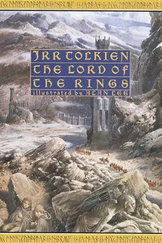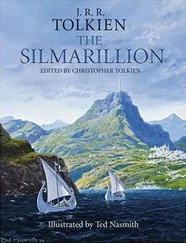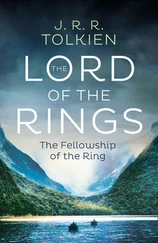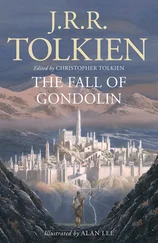J Tolkien - The Silmarillon
Здесь есть возможность читать онлайн «J Tolkien - The Silmarillon» весь текст электронной книги совершенно бесплатно (целиком полную версию без сокращений). В некоторых случаях можно слушать аудио, скачать через торрент в формате fb2 и присутствует краткое содержание. Год выпуска: 1985, ISBN: 1985, Издательство: Del Rey, Жанр: Эпическая фантастика, на английском языке. Описание произведения, (предисловие) а так же отзывы посетителей доступны на портале библиотеки ЛибКат.
- Название:The Silmarillon
- Автор:
- Издательство:Del Rey
- Жанр:
- Год:1985
- ISBN:0345325818
- Рейтинг книги:5 / 5. Голосов: 1
-
Избранное:Добавить в избранное
- Отзывы:
-
Ваша оценка:
- 100
- 1
- 2
- 3
- 4
- 5
The Silmarillon: краткое содержание, описание и аннотация
Предлагаем к чтению аннотацию, описание, краткое содержание или предисловие (зависит от того, что написал сам автор книги «The Silmarillon»). Если вы не нашли необходимую информацию о книге — напишите в комментариях, мы постараемся отыскать её.
Those interested in J.R.R. Tolkien's Middle Earth should not be without this grand volume that tells the tragic tale of the struggle for control of the Silmarils, a struggle that would determine the history of the world long before the War of the Ring.
The Silmarillon — читать онлайн бесплатно полную книгу (весь текст) целиком
Ниже представлен текст книги, разбитый по страницам. Система сохранения места последней прочитанной страницы, позволяет с удобством читать онлайн бесплатно книгу «The Silmarillon», без необходимости каждый раз заново искать на чём Вы остановились. Поставьте закладку, и сможете в любой момент перейти на страницу, на которой закончили чтение.
Интервал:
Закладка:
'Ye have spilled the blood of your kindred unrighteously and have stained the land of Aman. For blood ye shall render blood, and beyond Aman ye shall dwell in Death's shadow. For though Eru appointed to you to die not in Ea, and no sickness may assail you, yet slain ye may be, and slain ye shall be: by weapon and by torment and by grief; and your houseless spirits shall come then to Mandos. There long shall ye abide and yearn for your bodies, and find little pity though all whom ye have slain should entreat for you. And those that endure in Middle-earth and come not to Mandos shall grow weary of the world as with a great burden, and shall wane, and become as shadows of regret before the younger race that cometh after. The Valar have spoken.'
Then many quailed; but Feanor hardened his heart and said: 'We have sworn, and not lightly. This oath we will keep. We are threatened with many evils, and treason not least; but one thing is not said: that we shall suffer from cowardice, from cravens or the fear of cravens. Therefore I say that we will go on, and this doom I add: the deeds that we shall do shall be the matter of song until the last days of Arda.'
But in that hour Finarfin forsook the march, and turned back, being filled with grief, and with bitterness against the House of Feanor, because of his kinship with Olwe of Alqualonde; and many of his people went with him, retracing their steps in sorrow, until they beheld once more the far beam of the Mindon upon Tuna still shining in the night, and so came at last to Valinor. There they received the pardon of the Valar, and Finarfin was set to rule the remnant of the Noldor in the Blessed Realm. But his sons were not with him, for they would not forsake the sons of Fingolfin; and all Fingolfin's folk went forward still, feeling the constraint of their kinship and the will of Feanor, and fearing to face the doom of the Valar, since not all of them had been guiltless of the Kinslaying at Alqualonde. Moreover Fingon and Turgon were bold and fiery of heart, and loath to abandon any task to which they had put their hands until the bitter end, if bitter it must be. So the main host held on, and swiftly the evil that was foretold began its work.
The Noldor came at last far into the north of Arda; and they saw the first teeth of the ice that floated in the sea, and knew that they were drawing nigh to the Helcaraxe. For between the land of Aman that in the north curved eastward, and the east-shores of Endor (which is Middle-earth) that bore westward, there was a narrow strait, through which the chill waters of the Encircling Sea and the waves of Belegaer flowed together, and there were vast fogs and mists of deathly cold, and the sea-streams were filled with clashing hills of ice and the grinding of ice deep-sunken.
Such was the Helcaraxe, and there none yet had dared to tread save the Valar only and Ungoliant Therefore Feanor halted and the Noldor debated what course they should now take. But they began to suffer anguish from the cold, and the clinging mists through which no gleam of star could pierce; and many repented of the road and began to murmur, especially those that followed Fingolfin, cursing Feanor, and naming him as the cause of all the woes of the Eldar. But Feanor, knowing all that was said, took counsel with his sons; and two courses only they saw to escape from Araman and come into Endor: by the straits or by ship. But the Helcaraxe they deemed impassable, whereas the ships were too few. Many had been lost upon their long journey, and there remained now not enough to bear across all the great host together; yet none were willing to abide upon the western coast while others were ferried first: already the fear of treachery was awake among the Noldor. Therefore it came into the hearts of Feanor and his sons to seize all the ships and depart suddenly; for they had retained the mastery of the fleet since the battle of the Haven, and it was manned only by those who had fought there and were bound to Feanor. And as though it came at his call, there sprang up a wind from the north-west, and Feanor slipped away secretly with all whom he deemed true to him, and went aboard, and put out to sea, and left Fingolfin in Araman. And since the sea was there narrow, steering east and somewhat south he passed over without loss, and first of all the Noldor set foot once more upon the shores of Middle-earth; and the landing of Feanor was at the mouth of the firth which was called Drengist and ran into Dorlomin.
But when they were landed, Maedhros the eldest of his sons, and on a time the friend of Fingon ere Morgoth's lies came between, spoke to Feanor, saying: 'Now what ships and rowers will you spare to return, and whom shall they bear hither first? Fingon the valiant?'
Then Feanor laughed as one fey, and he cried: 'None and none! What I have left behind I count now no loss; needless baggage on the road it has proved. Let those that cursed my name, curse me still, and whine their way back to the cages of the Valar! Let the ships burn!' Then Maedhros alone stood aside, but Feanor caused fire to be set to the white ships of the Teleri. So in that place which was called Losgar at the outlet of the Firth of Drengist ended the fairest vessels that ever sailed the sea, in a great burning, bright and terrible. And Fingolfin and his people saw the light afar off, red beneath the clouds; and they knew that they were betrayed. This was the firstfruits of the Kinslaying and the Doom of the Noldor.
Then Fingolfin seeing that Feanor had left him to perish in Araman or return in shame to Valinor was filled with bitterness; but he desired now as never before to come by some way to Middle-earth, and meet Feanor again. And he and his host wandered long in misery, but their valour and endurance grew with hardship; for they were a mighty people, the elder children undying of Elu Iluvatar, but new-come from the Blessed Realm, and not yet weary with the weariness of Earth. The fire of their hearts was young, and led by Fingolfin and his sons, and by Finrod and Galadriel, they dared to pass into the bitterest North; and finding no other way they endured at last the terror of the Helcaraxe and the cruel hills of ice. Few of the deeds of the Noldor thereafter surpassed that desperate crossing in hardihood or woe.
There Elenwe the wife of Turgon was lost, and many others perished also; and it was with a lessened host that Fingolfin set foot at last upon the Outer Lands. Small love for Feanor or his sons had those that marched at last behind him, and blew their trumpets in Middle-earth at the first rising of the Moon.
Chapter 10
Of the Sindar Now as has been told the power of Elwe and Melian increased in Middle-earth, and all the Elves of Beleriand, from the mariners of Cirdan to the wandering hunters of the Blue Mountains beyond the River Gelion, owned Elwe as their lord; Elu Thingol he was called, King Greymantle, in the tongue of his people. They are called the Sindar, the Grey-elves of starlit Beleriand; and although they were Moriquendi, under the lordship of Thingol and the teaching of Melian they became the fairest and the most wise and skilful of all the Elves of Middle-earth. And at the end of the first age of the Chaining of Melkor, when all the Earth had peace and the glory of Valinor was at its noon, there came into the world Luthien, the only child of Thingol and Melian. Though Middle-earth lay for the most part in the Sleep of Yavanna, in Beleriand under the power of Melian there was life and joy, and the bright stars shone as silver fires; and there in the forest of Neldoreth Luthien was born, and the white flowers of niphredil came forth to greet her as stars from the earth.
It came to pass during the second age of the captivity of Melkor that Dwarves came over the Blue Mountains of Ered Luin into Beleriand. Themselves they named Khazad, but the Sindar called them Naugrim, the Stunted People, and Gonnhirrim, Masters of Stone. Far to the east were the most ancient dwellings of the Naugrim, but they had delved for themselves great halls and mansions, after the manner of their kind, in the eastern side of Ered Luin; and those cities were named in their own tongue Gabilgathol and Tumunzahar. To the north of the great height of Mount Dolmed was Gabilgathol, which the Elves interpreted in their tongue Belegost, that is Mickleburg; and southward was delved Tumunzahar, by the Elves named Nogrod, the Hollowbold. Greatest of all the mansions of the Dwarves was Khazaddum, the Dwarrowdelf, Hadhodrond in the Elvish tongue, that was afterwards in the days of its darkness called Moria; but it was far off in the Mountains of Mist beyond the wide leagues of Eriador, and to the Eldar came but as a name and a rumour from the words of the Dwarves of the Blue Mountains.
Читать дальшеИнтервал:
Закладка:
Похожие книги на «The Silmarillon»
Представляем Вашему вниманию похожие книги на «The Silmarillon» списком для выбора. Мы отобрали схожую по названию и смыслу литературу в надежде предоставить читателям больше вариантов отыскать новые, интересные, ещё непрочитанные произведения.
Обсуждение, отзывы о книге «The Silmarillon» и просто собственные мнения читателей. Оставьте ваши комментарии, напишите, что Вы думаете о произведении, его смысле или главных героях. Укажите что конкретно понравилось, а что нет, и почему Вы так считаете.












